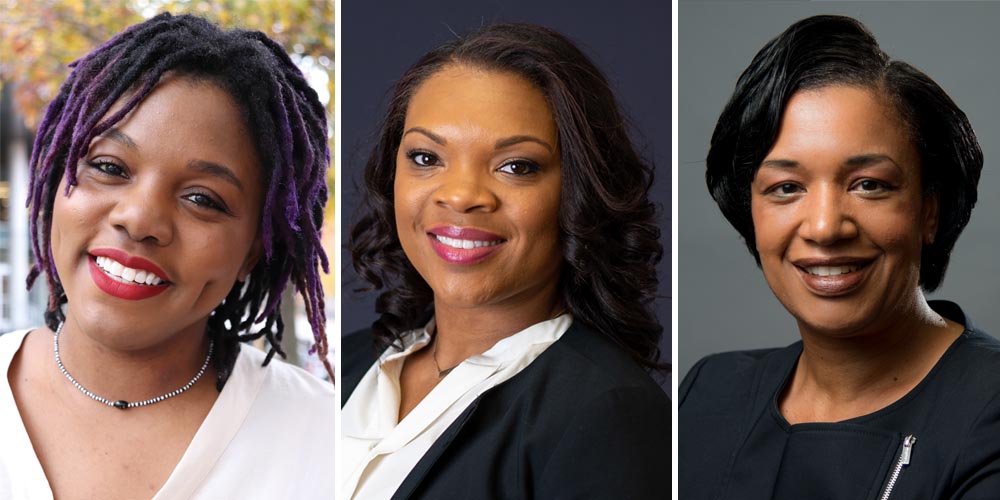Exposing unfair treatment of black girls in schools
SOE researchers present on ways to challenge practice and ideologies

Black girls routinely face disproportionate amounts of discipline in their classrooms over subjective issues like their hair, their bodies, or their attitudes – and the policies in place in schools are not set up to address this issue. Often, their experiences are not paid attention to at all. As a result, black girls are either invisible in school or they’re hyper-visible, but for the wrong reasons.
This is according to research conducted by Dr. Danielle Apugo, visiting iCubed scholar who is researching methods toward disrupting criminalization in education. Apugo presented her research, “Counted Out: Centering Black Girls in Public Schools” at the 2019 Virginia is for All Learners Education Equity Summer Institute, a conference focused on promoting equitable opportunities and outcomes for all students in Virginia’s public schools.
The two-day conference was the fourth in a series of annual programs focused on the importance of providing the supports and wrap-around services necessary to ensure that all students are successful in school.
Apugo collaborated with Dr. Risha Berry, assistant professor in the Department of Educational Leadership, and Dr. Tomika Ferguson, assistant professor and co-coordinator in the Ed.D. in Leadership program, on the presentation. The trio of educators were encouraged to present together after initially submitting similar, yet independent, proposals to the conference.
Berry said she took a more behind-the-scenes role, encouraging Apugo and Ferguson to be the ones to present during the conference, as Berry’s research is centered on the sociology of education. Her work focuses on structural racism and the role of organizations in the creation of structural barriers to educational attainment and wealth building by race.
Apugo’s and Ferguson’s presentation focused on ways to challenge practice and ideologies routinely used to engage in relationships with black girls in school, bringing to light the statistics around how often and for what reasons black girls are punished over their white peers. The presentation also focused on some of the unknown accomplishments of black girls in schools.
Apugo said it was great bringing together everyone’s different backgrounds, from Dr. Berry’s work in policy, Dr. Ferguson’s work with different grant opportunities regarding issues surrounding black girls, and Apugo’s own experience as a classically trained teacher in K-12.
“We [ended up with] a variety of perspectives on just what it means to first locate black girls in the school system and figure out what’s going on with them, then to start figuring out some of the ways the system itself is affecting their trajectories as a whole,” said Apugo.
Ferguson said there were many reasons the topic of black girls in schools is important to her, but one reason in particular was the opportunity to approach it from a new direction.
“I’m really intrigued by this work because I feel like a lot of the topics that are discussed are about deficit models around black girls in education. It’s all about push out, it’s all about criminalization. So, I have this anti-deficit, anti-racist approach in thinking about the black girl experience in education. Not just in K-12, but higher education, also,” she said.
The women said the reception they received at the conference was positive and encouraging.
“It gave us an opportunity to have critical conversations in a structured and intentional way with people who care; for people to say, ‘I haven’t thought about it in that way.’ It gave us an opportunity to challenge practice and ideologies, and the way that we engage in relationships with black girls,” said Ferguson.